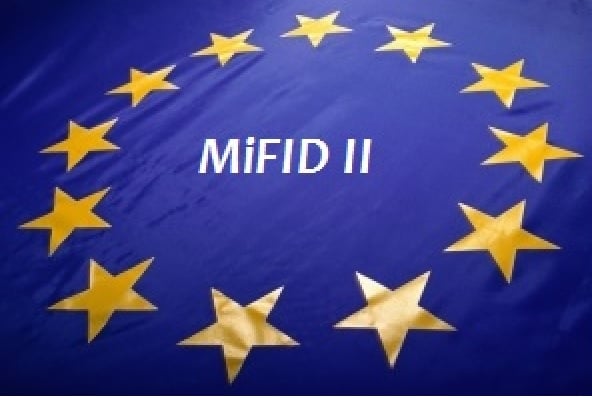Supervisors will focus on examining the implementation of existing regulation, especially MiFID II, after an informal grace period last year according to the Deloitte Centre for Regulatory Strategy.
The consultancy said in its Regulatory Outlook for 2019 that this year is important as it marks the the first calendar year following implementation of several major pieces of regulation.
“After an informal “grace period” for firms through 2018, supervisors will scrutinise the implementation of PRIIPs, MiFID II, PSD2, IDD and GDPR,” added Deloitte. “MiFID II is likely to be at the vanguard of post‐implementation scrutiny.”
https://twitter.com/DeloitteUK_FS/status/1081863697956388865
MiFID II went live in the European Union in January 2018.
The report continued that most supervisors will prioritise transaction reporting, payment for research and inducements when reviewing how MiFID II has been implemented. In addition, they will review how firms use the increased data being reported under MiFID II to achieve best execution, despite issues with the data.
Transparency
MiFID II aimed to increase transparency across by increasing both pre- and post-trade reporting and extending these requirements to new asset classes, including fixed income. Although the increased reporting has been in place for a year, Deloitte noted that market participants have not realised the full benefits as a consolidated tape provider has not emerged.
However, MiFID II gives the European Securities and Markets Authority the ability to appoint a consolidated tape provider under certain conditions.
Deloitte said: “We expect this work to kick‐off in 2019. Second, there are concerns about the high costs and poor availability of market data. We expect Esma to address this in 2019.”
The issues with MiFID II data were also highlighted in a survey by the International Capital Market Association last year. Nearly all, 86%, of respondents, said they found it ‘difficult’ or ‘very difficult’ to access pre- and post-trade data. In addition nearly three quarters, 73%, said less than 10% of the available data is ‘usable’.
 Martin Scheck, ICMA
Martin Scheck, ICMA
Martin Scheck, chief executive of ICMA, said in a statement at the time: “Despite the resource commitment to meet the obligations of MiFID II our members, both buy and sell-side, are not yet seeing the benefits of this regulation although they do understand that it will take time for the many challenges to be addressed and for benefits to accrue. Data quality and accessibility were cited as particular concerns.”
The association said that although this will improve over time, the regulators “missed an opportunity” to provide a utility-based consolidated tape for fixed income.
Best execution
MiFID II also requires annual publication of best execution reports but the ICMA survey found these were expensive to produce and barely used. Nearly all, 95%, of firms said the best execution data reporting requirements, under RTS 27 and 28, are “challenging, time and resource draining, and of little or no value.”
Despite these results, Deloitte expects supervisors to look at how firms are using the increased MiFID II data, particularly in relation to fixed income. The consultancy also said authorities will scrutinise the next round of top five execution venue (RTS 28) reports due in April this year.
“While last year’s reports were on a best efforts basis, already they have shown that many firms execute via closely‐linked parties or with a small number of brokers per asset class,” said Deloitte. “Firms should review the execution venues they use regularly and consider any unexpected trends, and analyse competitors’ reports.”
Transaction reporting
The consultancy continued that under the original MiFID, 12 firms were fined £33m for breaches in reporting by the UK Financial Conduct Authority, with further fines across the EU.
“With the greatly expanded rules under MiFID II, there are even more pitfalls,” continued Deloitte. “Our survey of ten EU regulators revealed that six are currently undertaking or planning supervisory activities on MiFID II transaction reporting.”
In addition revisions to reporting rules under Emir, the regulations covering central clearing, are expected to come into force in the first quarter of this year.
“While the proposal to remove the requirement to backload transactions will be welcomed, the much anticipated proposal that CCPs, rather than counterparties, would report exchange‐traded derivatives is not likely to be taken forward,” said Deloitte.
Market Abuse
Jason Merritt, director of business development at NICE Actimize, which provides technology to combat money laundering, fraud, and compliance violations, said in an email that there are currently no figures available for suspicious transaction and order reports in 2018, so it is difficult to gauge the impact of MiFID II on market abuse.
“We have not yet seen a greater number of regulatory investigations so far, and it may still be too early to see impact of the new regulation,” he added.
 Jason Merritt, NICE Actimize
Jason Merritt, NICE Actimize
Merritt continued that the MiFID II requirement for a legal entity identifier on all transactions on EU venues will enable regulators to monitor for market abuse across firms and across products.
“Historically the same client was identified differently across firms, now there will be no hiding place for clients who attempt to disguise their illegal activity by splitting orders/executions across firms,” he said.














